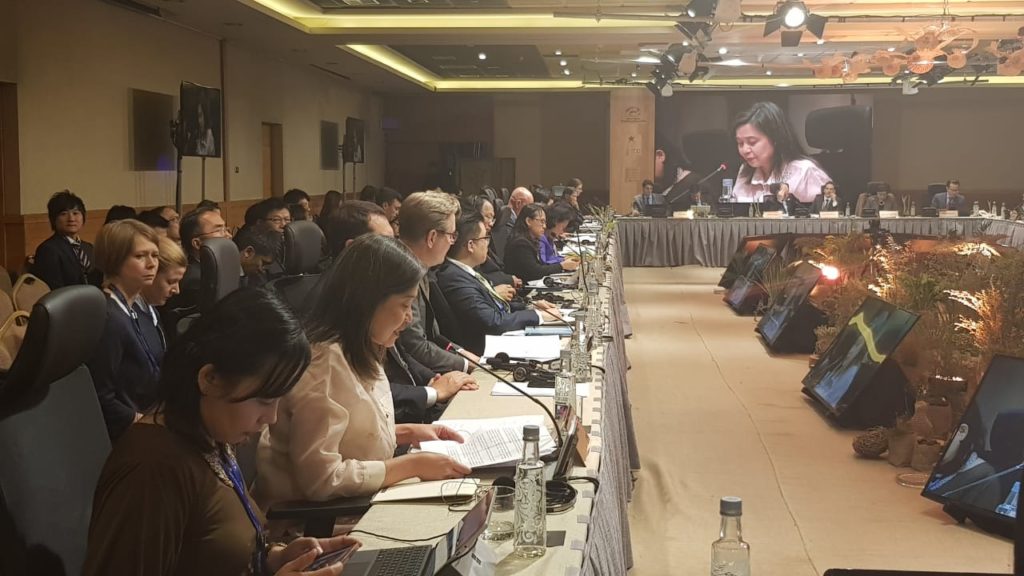WASHINGTON, D.C. – Heading the Philippine Delegation to the APEC Food Security Ministerial Meeting in Puerto Varas, Chile on August 23, 2019, Dr. Josyline C. Javelosa, Agriculture Attache to the United States and the Americas, shared with APEC economies 8 paradigms that the new Philippine agriculture leadership through Agriculture Secretary Dr. William D. Dar will build around to level up Philippine agriculture as a means to achieve food security with prosperous farmers and fisherfolk: These are: 1) Modernization of agriculture; 2) Industrialization of agriculture; 3) Promotion of exports; 4) Consolidation of small and medium-sized farms; 5)Infrastructure development; 6) Higher budget and investment for Philippine agriculture; 7) Legislative support; and 8) Roadmap development.
In the Philippine Statement, Dr. Javelosa also noted that the Philippines is recognized as one of Asia’s fastest growing economies and a strategy of promoting agriculture and rural development among other strategies can help bring about inclusivity in this fast growth.
Ministers of Agriculture from the APEC member economies issued a statement following their meeting.
The statement reflects the outcomes of the 5th APEC Food Security Ministerial Meeting chaired by Chile’s Minister of Agriculture Antonio Walker, addressing the following areas:
- Fostering Sustainable Food Systems
- Embracing innovation, emerging technologies and digital opportunities
- Leveraging associativity and enhancing food value chains and trade
- Strengthening Rural Development as a Place of Opportunities
APEC is recognized as a powerful medium for regional prosperity through free trade and investments – a venue to seek greater cooperation and collaboration with member economies that collectively represent nearly half (47 percent) of global trade in goods and services. These include ongoing efforts on food safety standards and climate change. ###

